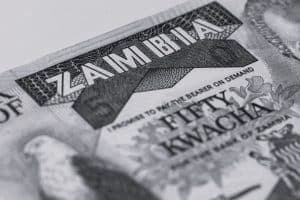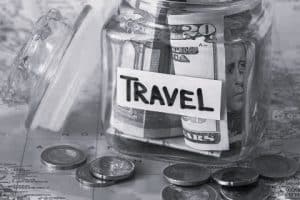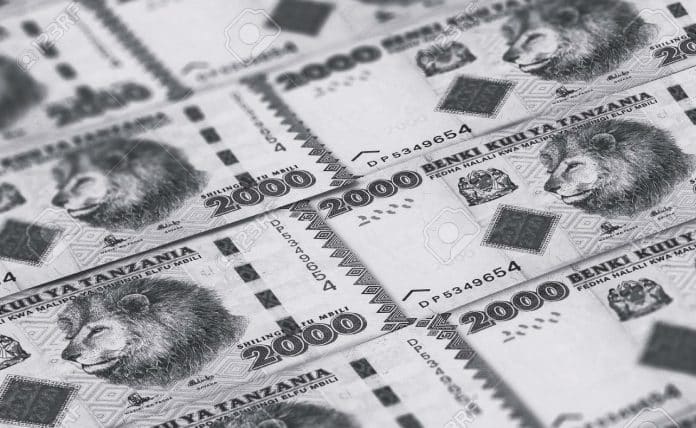Navigating Currency Conversion: Exploring the Value of 2000 Tanzanian Shillings in Zambian Kwacha
Are you planning a trip to East Africa and wondering about currency conversion? Look no further! In this article, we will dive into the value of 2000 Tanzanian Shillings to Zambian Kwacha, helping you navigate currency rates with confidence.
Understanding the value of your money is essential when traveling abroad. With fluctuating currency rates, it’s crucial to stay informed to make the most of your budget. Whether you’re a tourist exploring the Serengeti or a business traveler attending conferences in Lusaka, knowing how far your money goes can greatly impact your experience.
By examining the exchange rate between the Tanzanian Shilling and the Zambian Kwacha, we will provide insights into the purchasing power of 2000 Tanzanian Shillings in Zambia. Through this exploration, you will gain a better understanding of the buying power of your money and the potential cost of goods and services during your visit.
Join us as we unravel the mysteries of currency conversion and equip you with the knowledge you need to make informed financial decisions while exploring the wonders of East Africa.
Understanding Tanzanian Shillings and Zambian Kwacha

Before we dive into the value of 2000 Tanzanian Shillings to Zambian Kwacha, let’s take a closer look at the currencies themselves. The Tanzanian Shilling (TZS) is the official currency of Tanzania, while the Zambian Kwacha (ZMW) is the official currency of Zambia.
The Tanzanian Shilling is denoted by the currency code TZS and is subdivided into 100 cents. It is issued by the Bank of Tanzania and comes in banknotes of various denominations, including 500, 1000, 5000, 10,000, and 20,000 Tanzanian Shillings.
On the other hand, the Zambian Kwacha is denoted by the currency code ZMW and is also subdivided into 100 ngwee. The Bank of Zambia is responsible for issuing the currency, which comes in banknotes of 2, 5, 10, 20, 50, 100, and 200 Kwacha.
Understanding the basic structure and denominations of these currencies is important when it comes to currency conversion. Now, let’s explore the factors that can affect currency exchange rates.
Factors affecting currency exchange rates
Currency exchange rates can fluctuate due to a variety of factors. Understanding these factors can help you make sense of the value of 2000 Tanzanian Shillings to Zambian Kwacha and make informed financial decisions during your trip.
One of the primary factors affecting currency exchange rates is supply and demand. When there is a high demand for a particular currency, its value tends to increase. Conversely, if there is an oversupply of a currency, its value may decrease.
Economic factors also play a significant role in currency exchange rates. Factors such as inflation rates, interest rates, and economic stability can impact a country’s currency value. For example, if a country has low inflation and a stable economy, its currency is likely to be more valuable compared to a country with high inflation and economic uncertainty.
Political stability and geopolitical events can also influence currency exchange rates. Political upheavals, elections, or changes in government policies can cause currency values to fluctuate. Additionally, global events such as economic crises or natural disasters can have a ripple effect on currency exchange rates.
Understanding these factors can provide valuable insights into why the value of 2000 Tanzanian Shillings in Zambian Kwacha may vary over time. Now, let’s calculate the value of 2000 Tanzanian Shillings in Zambian Kwacha based on the current exchange rate.
Calculating the value of 2000 Tanzanian Shillings in Zambian Kwacha

To calculate the value of 2000 Tanzanian Shillings to Zambian Kwacha, we need to consider the current exchange rate between the two currencies. Exchange rates can fluctuate daily, so it’s essential to check the latest rates before making any currency conversions.
Let’s assume the current exchange rate is 1 Tanzanian Shilling (TZS) = 0.08 Zambian Kwacha (ZMW). Using this exchange rate, we can calculate the value of 2000 Tanzanian Shillings in Zambian Kwacha.
2000 Tanzanian Shillings * 0.08 Zambian Kwacha = 160 Zambian Kwacha
Therefore, based on the given exchange rate, 2000 Tanzanian Shillings is equivalent to 160 Zambian Kwacha. Keep in mind that this value may change depending on the prevailing exchange rate at the time of your currency conversion.
Now that we have calculated the value, let’s take a look at the historical exchange rates between Tanzanian Shillings and Zambian Kwacha to gain a broader perspective.
Historical exchange rates between Tanzanian Shillings and Zambian Kwacha
The historical exchange rates between Tanzanian Shillings and Zambian Kwacha can provide insights into the fluctuations in currency values over time. While these rates cannot predict future changes, they can give you an idea of the currency’s volatility.
Over the past decade, the exchange rate between Tanzanian Shillings and Zambian Kwacha has varied. In 2011, 1 Tanzanian Shilling was equivalent to approximately 0.05 Zambian Kwacha. However, by 2015, the exchange rate had increased to 1 Tanzanian Shilling = 0.08 Zambian Kwacha.
In recent years, the exchange rate has remained relatively stable, with minor fluctuations. However, it’s important to note that currency exchange rates can be influenced by various economic and political factors, as mentioned earlier. Therefore, it’s always a good idea to check the latest rates before making any currency conversions.
Now that we have explored the value of 2000 Tanzanian Shillings in Zambian Kwacha and examined the historical exchange rates, let’s move on to some practical tips for navigating currency conversion.
Tips for navigating currency conversion
Navigating currency conversion can seem daunting, especially when you’re in a foreign country. However, with the right approach and a few useful tips, you can make the most of your money and avoid unnecessary financial stress.
- Research and plan ahead: Before your trip, research the current exchange rates and familiarize yourself with the denominations of the local currency. This will help you estimate the value of your money and plan your budget accordingly.
- Use reputable exchange services: When exchanging your currency, opt for reputable exchange services such as banks or authorized currency exchange offices. Avoid exchanging money with street vendors or unauthorized individuals, as they may offer unfavorable rates or counterfeit currency.
- Be mindful of transaction fees: Some currency exchange services may charge transaction fees or hidden costs. Before exchanging your money, inquire about any fees involved to make an informed decision.
- Consider using local ATMs: Using local ATMs can often provide you with a better exchange rate compared to exchanging your money at airports or hotels. However, be cautious of ATM fees and notify your bank about your travel plans to avoid any disruptions in accessing your funds.
- Keep small denominations: It’s always a good idea to keep some smaller denominations of the local currency for small purchases or tipping. This will help you avoid any inconvenience of receiving change in a foreign currency.
By following these tips, you can navigate currency conversion with confidence and make the most of your money during your trip. Additionally, there are various currency conversion tools and resources available to assist you along the way.
Currency conversion tools and resources
In this digital age, there are numerous currency conversion tools and resources available at your fingertips. These tools can help you quickly calculate the value of your money and stay updated with the latest exchange rates.
- Currency converter apps: There are several mobile apps available that allow you to convert currencies on the go. These apps usually provide real-time exchange rates and can be a handy tool for quick calculations.
- Online currency converters: Many websites offer online currency converters where you can enter the amount and select the currencies you wish to convert. These converters often provide additional features such as historical exchange rate charts and currency exchange rate alerts.
- Financial news websites: Financial news websites often feature currency exchange rate sections where you can find the latest exchange rates, market trends, and analysis. Keeping an eye on these websites can provide you with valuable insights into currency movements.
- Local banks and foreign exchange offices: If you prefer a more traditional approach, local banks and foreign exchange offices can provide you with up-to-date exchange rates and assist you with currency conversion.
By utilizing these tools and resources, you can stay informed and make informed decisions regarding currency conversion. However, it’s important to be aware of some common challenges you may face during the process.
Common challenges in currency conversion
While currency conversion can be relatively straightforward, there are a few common challenges you may encounter along the way. Being aware of these challenges can help you navigate them more effectively.
- Fluctuating exchange rates: Exchange rates can fluctuate daily, sometimes even multiple times a day. This volatility can make it challenging to predict the exact value of your money at any given time. Staying updated with the latest rates and using reputable conversion tools can help mitigate this challenge.
- Hidden fees and charges: Some currency exchange services may apply hidden fees or unfavorable exchange rates, resulting in less favorable conversions. Always inquire about any fees involved and compare rates from different providers to ensure you’re getting the best value for your money.
- Counterfeit currency: In some countries, counterfeit currency can be a concern. To minimize the risk, exchange your money at reputable establishments and familiarize yourself with the security features of the local currency.
- Language barriers: When exchanging currency in a foreign country, language barriers may pose a challenge. It’s advisable to have a currency converter app or a reliable translation app on hand to help you communicate your needs effectively.
By being aware of these challenges and taking necessary precautions, you can navigate currency conversion more smoothly and avoid any potential pitfalls. Whether you’re traveling for leisure or business, understanding currency conversion is crucial for a successful trip.
Currency conversion for travel and business purposes

Currency conversion is not only important for travelers but also for businesses operating across international borders. Understanding the value of your money and making informed financial decisions can greatly impact the success of your travel or business venture.
For travelers, having a good grasp of currency conversion allows you to plan your budget effectively, make the most of your money, and avoid unnecessary financial stress during your trip. It also enables you to compare prices and evaluate the cost of goods and services in different destinations.
For businesses, currency conversion is essential for conducting international transactions, managing foreign exchange risk, and determining the profitability of operations in different countries. Understanding the value of your money in the local currency is crucial for pricing products and services competitively and negotiating favorable business deals.
Whether you’re a traveler or a business professional, staying informed about currency conversion is a valuable skill that can greatly enhance your experiences and financial outcomes.
Conclusion
Navigating currency conversion can seem overwhelming at first, but with the right knowledge and resources, it becomes much easier. By understanding the value of 2000 Tanzanian Shillings to Zambian Kwacha and considering factors such as exchange rates, historical trends, and practical tips, you can make informed financial decisions during your trip to East Africa.
Remember to research and plan ahead, use reputable exchange services, and be mindful of transaction fees. Utilize currency conversion tools and resources such as mobile apps, online converters, and financial news websites to stay updated with the latest exchange rates. Be aware of common challenges in currency conversion and take necessary precautions to mitigate them.
Whether you’re exploring the vast landscapes of Tanzania or conducting business in Zambia, understanding currency conversion empowers you to make the most of your money and have a memorable experience in East Africa. So, embrace the world of currency exchange and embark on your journey with confidence!
For more articles related to Financial Services in Tanzania, click here!

































